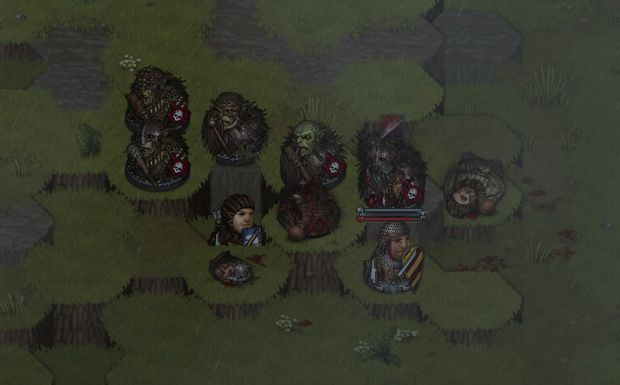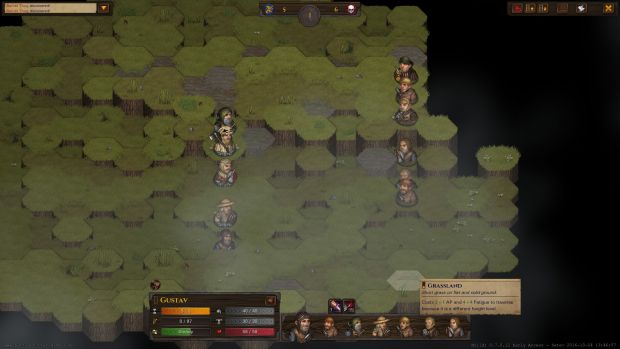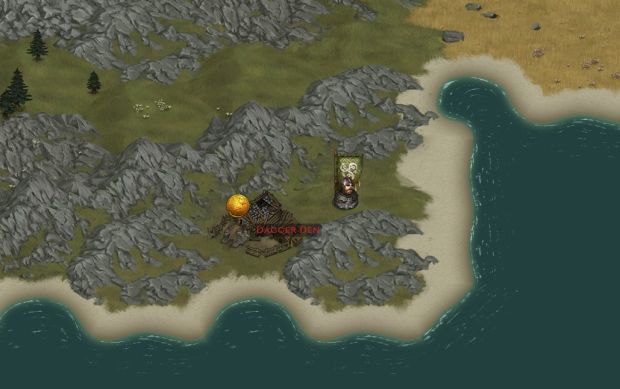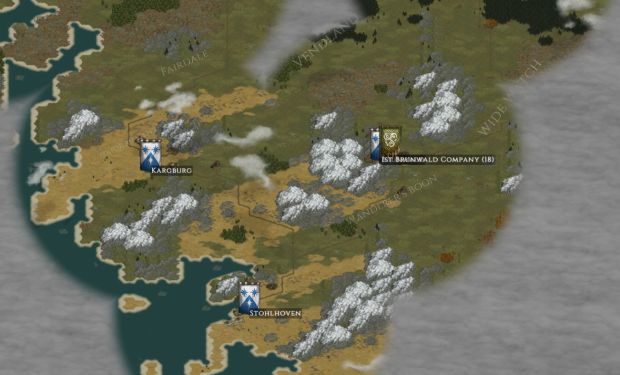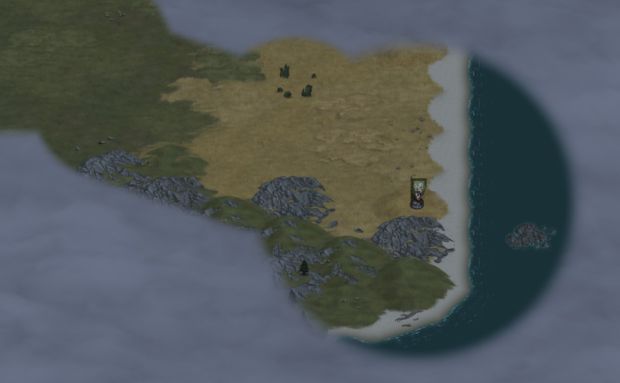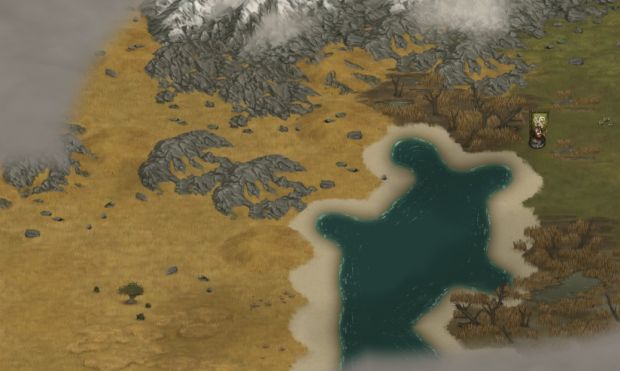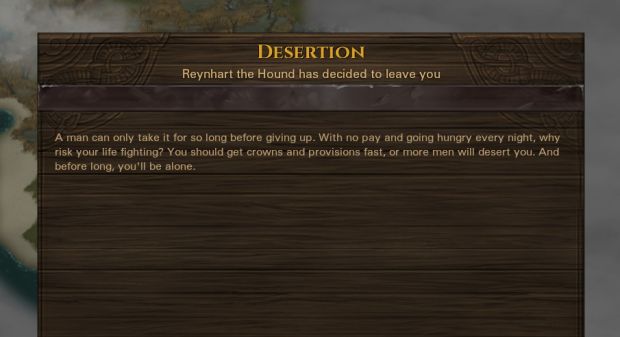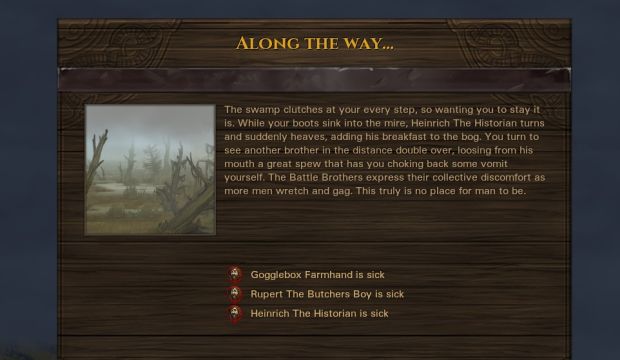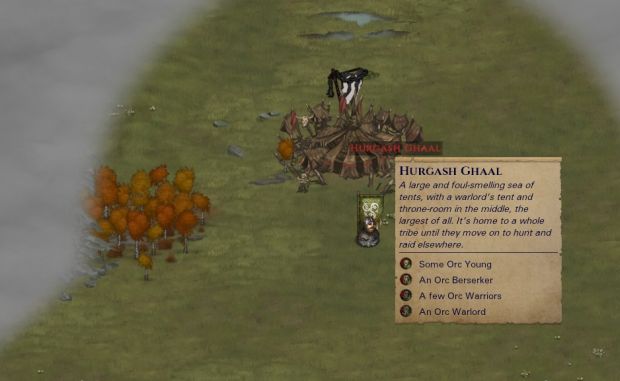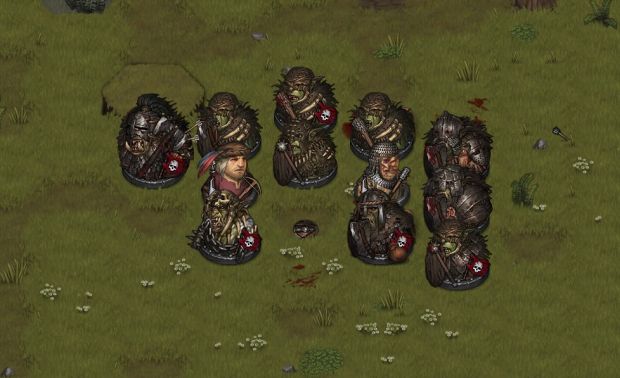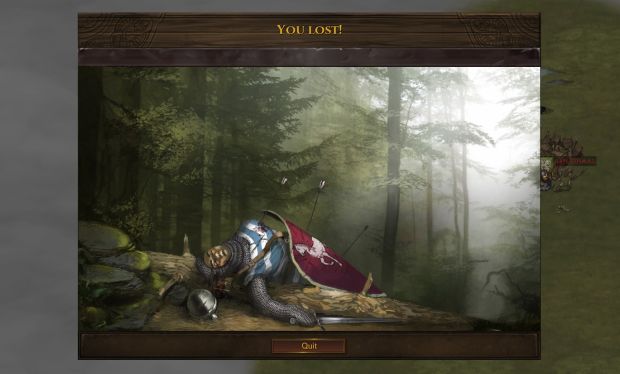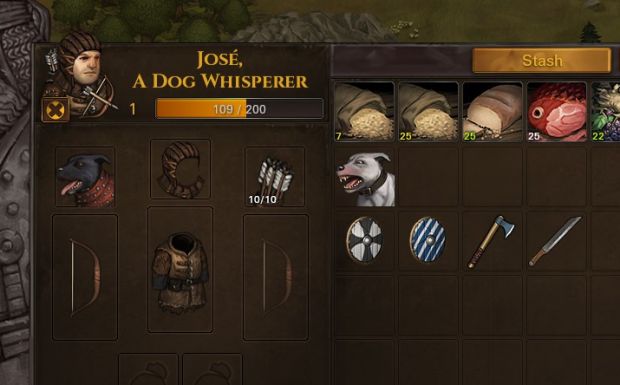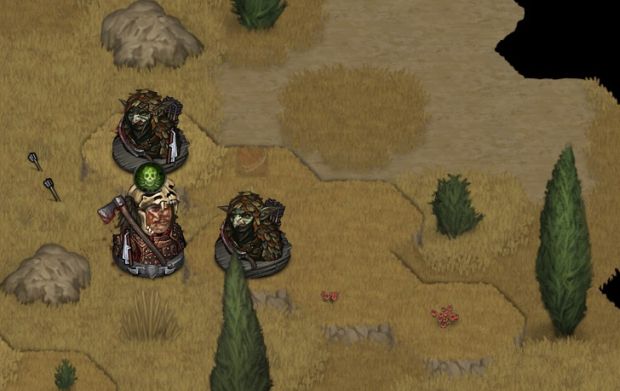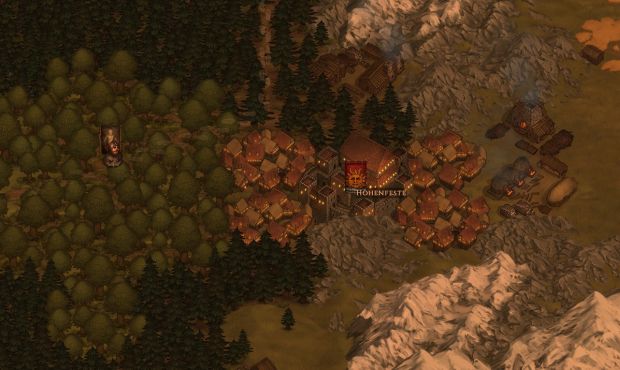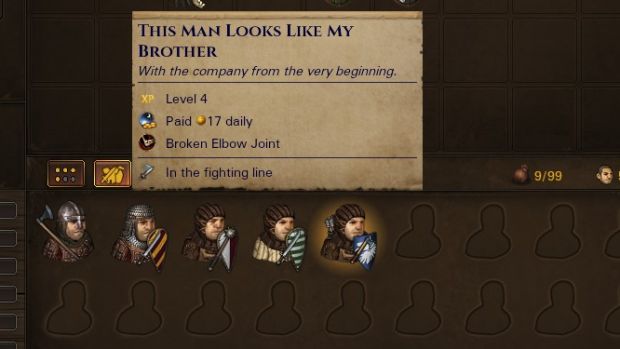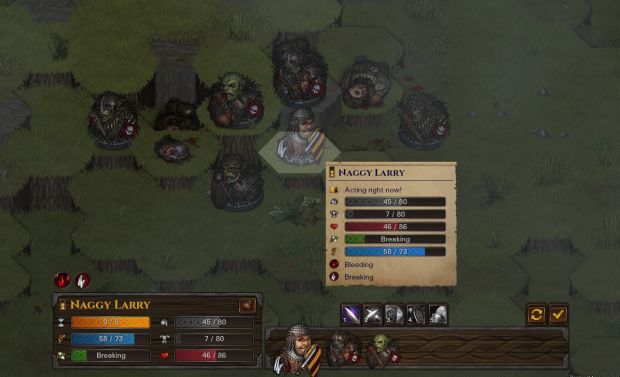Premature Evaluation: Battle Brothers
Super battle bros
Every Monday we find Brendan sulking in a tavern and recruit him into our brigade of early access mercenaries. This week, the tough, turn-based strategy of Battle Brothers [official site].
The life of a sellsword is not a forgiving one. But don’t take my word for it - ask José the Dog Whisperer, who has just been pushed into a narrow hole by a gang of heavily armoured Orcs and savagely sliced to bits from all sides. Oh, I suppose you can’t. Well, you could ask Fibs O’Hanlon, but no, now that I think about it, he was also stabbed until death. Let’s see, what about Dietrich With No Surname? Yes, he's the one without the head. Oh, oh I see what you mean.
Battle Brothers is set in a world of grimy fantasy, where goblins and bandits and goblin bandits assault you on the road, demanding your money and your life. You play as a posse of armed mercenaries, travelling between towns and taking contracts, but once you get into combat you really see that you are just a bunch of weird medieval busts, taking turns to die on a multi-layered hexagonal grid. It’s like a swords ‘n’ shields version of Jagged Alliance. But I haven’t played those games. Are they difficult? They must be difficult.
My first band of merry murderers took odd jobs of bandit-cleaning, concluding that this was a better-paying task than the mundane delivery quests offered in most towns. You can get 200 gold for escorting a caravan along a boring road but 500 gold for clearing a bunch of highwaymen from their hideout. We set forth to Dagger Den, where two of my five mercenaries promptly died in a melee with the robbers, who weren’t even particularly well armed or well co-ordinated. It was all down to the fighting.
There’s a bit to learn for this. You have action points, of course, and both movement and combat will eat these up. But your combat abilities depend on each man’s equipment and loadout. Those with a shield can perform a ‘shield wall’ for instance, increasing defense against the next incoming blow, and stacking with all other shield wallers in adjacent tiles. A warrior with a two-handed axe can perform a round swing, slashing at everyone in a circle (even at your own dudes if they are in those spaces). You can get rope nets to throw on people and disable them for a couple of turns, and for ranged combat there's bows or crossbows or throwing axes or javelins.
The tiles themselves have multiple heights and there’s usually an advantage to be had on higher tiles, but they can also cost more AP to reach. If you and an enemy are facing off, tile to tile, any attempt by either man to move will result in an automatic free swing for the other fighter. And if they successfully land the blow, the stricken person’s attempt to move is cut short. This means when you sidle up to an enemy, you are usually there until one of you dies. There are some ways out of this, though. You can stun enemies with blunt weapons, or knock them back a space if you have a shield, freeing you up to move away. In summary, there are lots of small micro-tactics and strategies to be used in combat. Your enemy will probably use them all better than you do.
So we limped away from Dagger Den and I collected my reward and recruited some more men. The extra coin did not go very far. You have to buy lots of stuff to keep your band in good shape – food is used every day, medicine is important to have on hand, and expensive repair tools are needed to keep equipment ship-shape after every fight. On top of that, all your men have their own daily wage and they will not stick around if you cannot pay. I would learn this last thing the hard way.
I gathered the men and equipped them as best I could. This time, I would not make the mistake of going into battle for anything less than a very good wage. I travelled between the towns, all with very German-sounding names - Brunwald, Stohlhoven, Kargburg – occasionally buying my men a round in the tavern, which has a chance to either put them in high spirits or get them drunk and useless. The towns only had caravan escort missions available. I spat at the offers. Perhaps if I traveled into the shroud of unknown space, we would find a new town where the gold was over-flowing. We stepped off the carefully set roads and went into the wilderness.
On the first day, we reached the sea. There were no towns.
On the second day, we made it through a desert. There were no towns.
On the third day, we ran out of money. Reynhart the Hound, our greatest warrior, deserted us. There were no towns.
On the fourth day, Arnold Axefella left and never came back. We walked through a fetid swamp, where the remaining men got sick and vomited. That night, Gustav the Quick, the only soldier who was not inflamed and vomiting, abandoned the group. There were no towns.
On the fifth day, there was a town. It was called Hurgash Ghaal. It was full of deadly orcs.
Knowing that this was the end of the brigade unless we got some money to keep the last four men happy, I decided to make a desperate raid on the orcs. I knew this was a mistake before I had even clicked on the town with the little sword cursor, but there was no alternative. We were running out of food and I was 123 gold pieces in debt to my own employees. Ten orcs rampaged out of the shadows of the combat screen and viciously enveloped the men, tearing them apart within four rounds of turns.
Be at peace, Cowardly Joe. I never saw you land a single hit. Rest well, Heinrich the Historian. You did absolutely nothing of note.
My second gang of mercs fared better. I had played the first game on Iron Man mode, meaning every bad decision was carved in autosave stone. For the second group, I did the same, but vowed to play a little more traditionally. I certainly didn’t turn my nose up at any simple delivery jobs this time. It went much better.
The map had changed, generating new lands and new German-sounding names – Lichtburg, Hattlund, Harkenstadt – I hit the poorest town I could find and hired every cheap fisherman, pilgrim and farmhand that would come along, arming them with bargain bucket knives and straw hats. One of them used to work in a kennel and could command attack dogs. I called him José the Dog Whisperer. I wouldn’t say he was a good fighter, but he did survive right up until the end.
Things started going wrong because of goblins. We had been swanning around the same five or six towns, patrolling roads, hunting direwolves, drinking in the taverns of Grunforst, visiting the kennels of Wolfswall, replacing dead dogs with other soon-to-be-dead dogs, when one of the councilmen of a town offered us a whopping 1050 gold to kill some goblins. It was the highest contract we’d seen so far. I was not going to turn it down. Perhaps I should have. It transpires that goblins are fond of poison.
We came out of the battle alive, but I had lost two men, including my best and most reliable berserker, Wotsit Skullman, who was the best shieldbreaker in the group, but also liked to wear the skull of an indeterminate animal on his head. We got the gold from this job and made even more money from the piles of salt we had looted from the goblins, but the gang never recovered from the loss of its best fighter.
I had a decision to make now. We had money but only five men. They weren’t bad men, but some of them, the archers particularly – José the Dog Whisperer and This Man Looks Like My Brother – couldn’t hit a damn thing. The low chance to hit for all rookie-level fighters is probably the most punitive thing about the combat. But you can level your men up to increase this chance, while also giving them other useful perks, like making them a shield expert for extra defence points, or boosting their resolve so that they don’t start running away in the middle of a fight. Grassy Knees Lee loved to run away during a battle, until he died in an ambush by bandits.
Anyway, the archers were still hitting nothing but air. I decided rather than hiring new men, who would probably only die in a few turns, just like Jaws the Wardog, Fang the Wardog, and Rags the Wardog, we would instead invest in better equipment.
I gave all five men the best armour I could find, equipped four of them with strong shields and gave the last man an impossibly expensive two-handed axe. It was Dietrich With No Surname, and he would swing this shining axe exactly twice before being summarily beheaded by an orc gang we had been employed to destroy.
José had been pushed into his death hole, and the corpse of Fibs O’Hanlon lay bloodied with stab wounds. Naggy Larry was the last to die, surrounded by angry green men who once again ended my game. This time we lasted nine rounds, which is what I meant when I said that things fared much better for the second group.
Battle Bros is a tough game. Soldier improvement happens slowly but their deaths happen quickly, giving battles the same feeling of peril as an XCOM skirmish, if not more. And despite constant scraping for gold and loot, it never feels like you have enough. Your mercenaries’ lives become not so much about profiting, but just surviving the next job and the next job, living long enough to level up and perhaps get a better helmet. There’s a precise crowd who will love this, and I suspect you’ll already know if that’s you.
You can get Battle Brothers on Steam for £14.99/$19.99 or directly from the developer for the same price. These impressions are based on build 1373002


